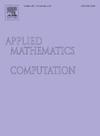具有动态资产和随机流动性相关性的随机截止日期内幕交易
IF 3.4
2区 数学
Q1 MATHEMATICS, APPLIED
引用次数: 0
摘要
我们在 Caldentey 和 Stacchetti(2010 年)以及 Collin-Dufresne 和 Fos(2016 年)的框架基础上提出了一个广义连续时间内幕交易模型,该模型中风险资产的价值遵循 Ornstein-Uhlenbeck 型过程,而噪音交易量的波动性则以一般随机过程为特征。由内部人的交易策略和做市商的定价规则组成,建立了市场均衡的封闭形式。结果表明,在均衡状态下:(i) 内幕交易者的所有私人信息都会在交易结束时被释放;(ii) 市场深度和市场流动性分别以半鞅形式演化;(iii) 均衡价格由求解奥恩斯坦-乌伦贝克型 SDE 的桥过程驱动。数值模拟表明,随着相关系数的增加,均衡价格的信息量会越来越大,从而导致交易强度和内部人预期收益的下降。本文章由计算机程序翻译,如有差异,请以英文原文为准。
Insider trading at a random deadline with correlation between dynamic asset and stochastic liquidity
We propose a generalized continuous-time insider trading model, building upon the frameworks of Caldentey and Stacchetti (2010) and Collin-Dufresne and Fos (2016), with a correlation between the value of a risky asset following an Ornstein-Uhlenbeck-type process and the noise trading volume with volatility characterized by a general stochastic process. And a closed form of the market equilibrium is established, consisting of the insider's trading strategy and the market makers' pricing rule. It shows that at the equilibrium: (i) all of the insider's private information is released at the end of the transaction; (ii) market depth and market liquidity evolve as semi-martingales, respectively; and (iii) the equilibrium price is driven by a bridge process that solves an Ornstein-Uhlenbeck-type SDE. Numerical simulations show that as the correlation coefficient increases, the equilibrium price becomes more informative, leading to a decrease in both the trading intensity and the expected payoff for the insider.
求助全文
通过发布文献求助,成功后即可免费获取论文全文。
去求助
来源期刊
CiteScore
7.90
自引率
10.00%
发文量
755
审稿时长
36 days
期刊介绍:
Applied Mathematics and Computation addresses work at the interface between applied mathematics, numerical computation, and applications of systems – oriented ideas to the physical, biological, social, and behavioral sciences, and emphasizes papers of a computational nature focusing on new algorithms, their analysis and numerical results.
In addition to presenting research papers, Applied Mathematics and Computation publishes review articles and single–topics issues.

 求助内容:
求助内容: 应助结果提醒方式:
应助结果提醒方式:


